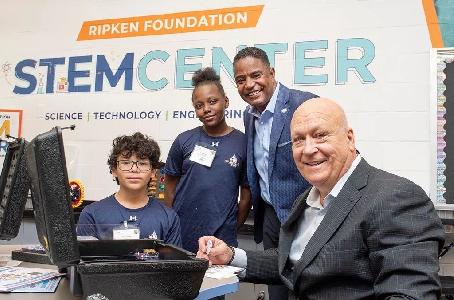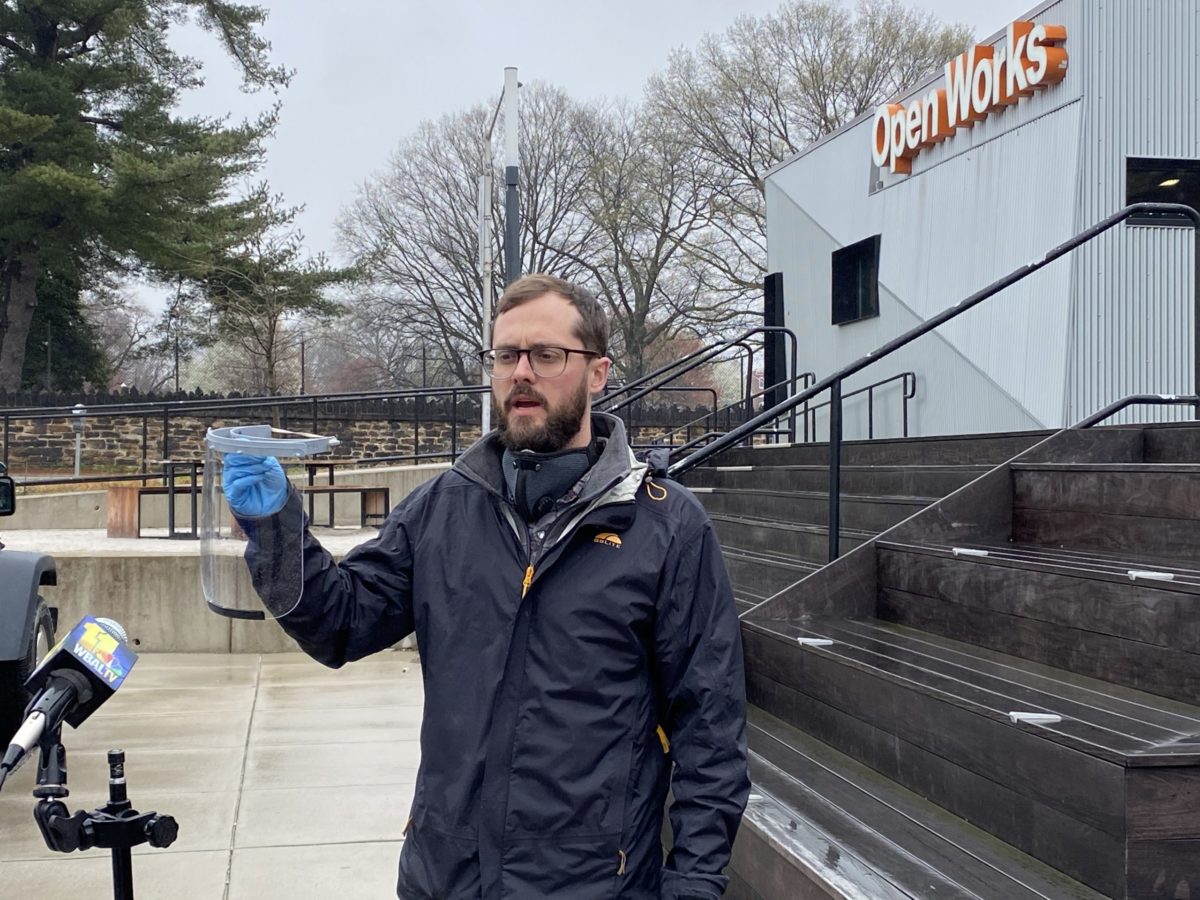After the state issued an order closing businesses to prevent the spread of COVID-19 last week, Open Works had to lay off 21 part-time employees. By the weekend, however, the remaining full-time team of six people was hatching a new response plan to the crisis at the Greenmount West makerspace.
After speaking with local hospital officials and seeing social media posts from doctors and nurses about the critical shortage for masks that can protect healthcare workers as they treat patients with COVID-19, Executive Director Will Holman began exploring how Open Works could spin up capacity to put the tools at the makerspace to use for filling the need.
What followed was a mobilization of local makers and entrepreneurship organizations to address a growing national need on a local level. It’s now coming under the banner of Makers Unite.
#makersunite pic.twitter.com/alsVrMcl3W
— OpenWorksBmore (@OpenWorksBmore) March 23, 2020
Holman located an open-source design of a face shield from Czech Republic-based PRUSA Printers. Then the team considered what they would need. They had lasercutters to cut the plastic for the shield, and the idled 34,000-square-foot makerspace had plenty of room to assemble the face shields, plus a ready workforce to do so from the group of technicians and member services tea members that had just been laid off a day before.
But, looking at the 13 3D printers in the space, Holman knew they would need more capacity to print key parts that sit between the plastic shield and the forehead at the top, and a part at the bottom that allows the mask to retain its shape. So, on Saturday morning, they put out the call via social media for folks with 3D printers.
The response, said Holman, was “overwhelming.”
“We have now signed up 260 volunteers with access to over 500 3D printers at home, at libraries, at schools and on military bases in state of Maryland,” Holman said Monday. “They are going to start printing these parts and sending them to us.”
The quick response required lots of other operations to get up and running quickly, and Holman said the team worked 16- and 20-hour days over the weekend to get it going. He said they’re building systems for production, distribution, ordering, part tracking and manufacturing.
They also now have a partnership with We The Builders, a group of makers founded out of Baltimore who have run worldwide community builds of crowdsourced sculptures of the likes of Edgar Allan Poe and Rosie the Riveter. They will have a website with build instructions, and all folks with 3D printers should sign up through its site, Holman said.
We The Builders will provide a “unique serial numbers for every printer working at home so we can maintain a chain of custody for the parts,” Holman said. “This is incredibly important so we can track volunteer acts to reward folks later, but also so we can create a chain of custody for the end medical product.”

3D printing face mask parts. (Courtesy photo)
For the 3D printers, they set up a drop-off point for the parts. With expectations of being able to make 500 masks a day, the assembly will happen in Open Works’ classrooms. They created processes to assemble the shields in packages of 10. And they accounted for safety processes that would require the workers to wear personal protective equipment, and allow the masks to be sterilized for several days before being delivered to hospitals.
Innovation Works, a nonprofit based inside of Open Works that is focused on building social enterprises, is interfacing with the healthcare institutions. Seeking to understand demand, Open Works had conversations with LifeBridge Health, Johns Hopkins and University of Maryland Medical System. The masks will be sold at cost to hospitals that request them via procurement channels that they would typically use.
Holman also credited Baltimore Creatives Acceleration Network, Made in Baltimore and Silver Spring-based Nation of Makers with collaborating to launch the effort.
Holman said along with education and economic development, it shows another role for makerspaces as playing a role in emergency response.
“We understand that this is still just a stopgap solution,” Holman said. “Other bigger companies are scaling up to make these using better technology like injection molding, but that’s still a week or two out according to everyone I’ve talked to. This is a way to put our finger in the dike until more supply is available.”
The organization is also looking to raise money for the effort. If it reaches a $25,000 goal by Friday, Holman said he would shave the beard he’s had for five-and-a-half years and put the results on social media.
Join the conversation!
Find news, events, jobs and people who share your interests on Technical.ly's open community Slack

Baltimore daily roundup: The city's new esports lab; a conference in Wilmington; GBC reports $4B of economic activity

Baltimore daily roundup: Find your next coworking space; sea turtle legislation; Dali raided and sued

Baltimore daily roundup: Johns Hopkins dedicates The Pava Center; Q1's VC outlook; Cal Ripken inaugurates youth STEM center


